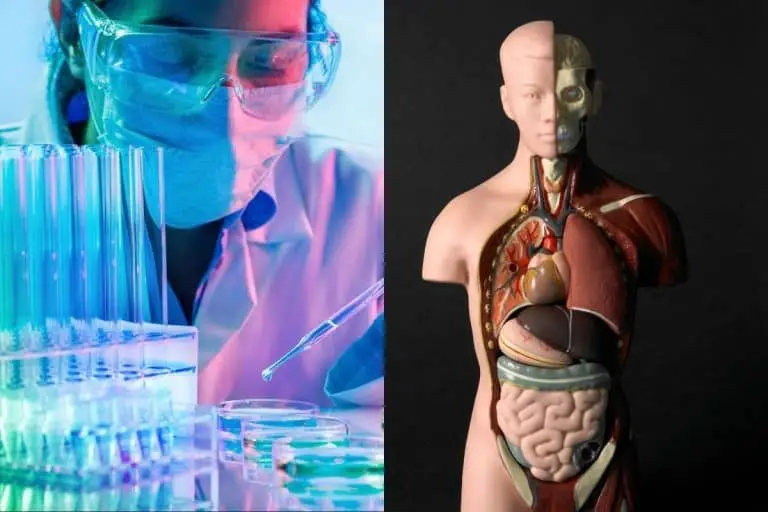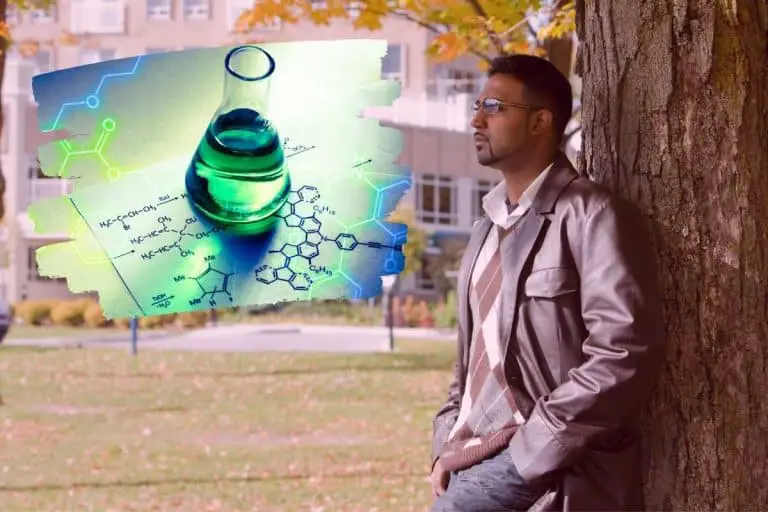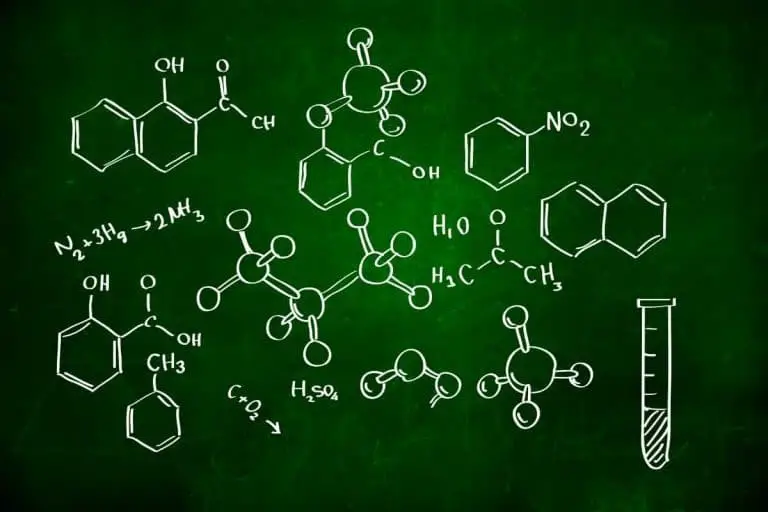Is College Chemistry the Same As General Chemistry?
Most people need to take a science class at some point in their academic journey. Chemistry is a common course that can fulfill any science credits you may need to graduate with a degree of your choice. However, students often struggle to differentiate between college chemistry and general chemistry courses.
College chemistry is not the same as general chemistry. For most schools, college chemistry is geared primarily towards science and engineering majors. On the other hand, general chemistry is designed for students pursuing a science credit only as part of their general education requirements.
College chemistry and general chemistry have many similarities, but they’re not the same course. Read on to learn the difference between these two courses and why you might choose to take one over the other (source).

What Is General Chemistry?
General chemistry primarily serves as an introduction to basic chemistry concepts. It’s geared towards students that don’t plan on pursuing a further career in chemistry or other related fields of science.
Colleges frequently classify general chemistry as a survey course.
A survey course is a class that broadly covers various topics related to a single field or discipline. This type of course typically exists solely to provide students with a fundamental level of knowledge on a topic (source).
General Chemistry Curriculum
General chemistry focuses on quantitative reasoning, basic laboratory procedures, and mathematical problem-solving. Often, the mathematics incorporated in general chemistry relates to stoichiometry.
In short, the goal of taking general chemistry is to become comfortable with common chemistry concepts and skills.
What Is College Chemistry?
College chemistry is geared towards students pursuing a degree in science or engineering in most colleges and universities. The course provides a slightly more rigorous chemistry curriculum than general chemistry.
Students typically choose to take college chemistry when they know they’ll need to learn more than the general chemistry class’s base level of chemistry education. Students may need this more extensive education as part of the specific major or degree that they’re pursuing.
For example, if a student is working towards a degree in engineering or the medical field, their career pathway may require that they complete a course worth of credits in a chemistry class above general chemistry (source).
What Is General Education?
If you don’t need to take chemistry as a means of pursuing a specific career path, chances are good that you’ll still need to take chemistry or a related science to complete your general education requirements.
General education is composed of primarily base-level courses. The subjects covered by general education requirements are meant to provide students with a solid foundation for their future degrees.
General education requirements range from credits for science, math, humanities, and English, among others.
In addition to completing credits within all of these categories, general education also requires that students take a specific number of elective credits. The exact number of credits you’ll need to complete to finish your general education depends on the degree you’re pursuing (source).
How Long Does It Take To Complete General Education?
Most students complete their general education requirements within their first two years of pursuing their degree. Frequently, half the time a student spends working towards a bachelor’s degree is dedicated to general education.
The time it takes each student to accomplish their general education credits depends on their expected degree and personal schedule (source).
Is Chemistry Part of General Education?
Chemistry is not part of general education, but as of recent years, it has become a requirement for general education. However, chemistry courses can contribute to specific categories of general education.
Most universities classify chemistry as natural science. The category of natural science is a general education requirement. With this in mind, many colleges offer physics, chemistry, and biology as options for fulfilling this general education credit.
So, although general education doesn’t typically require chemistry in most cases, chemistry courses can meet certain general education requirements (source).
Is College Chemistry Harder Than General Chemistry?
Most students would agree that college chemistry is a more challenging course than general chemistry. Due to its slightly more rigorous curriculum, college chemistry may take more time and effort to succeed in as a course.
Common Chemistry Courses
The differences between college chemistry and general chemistry don’t apply to every school. Instead of offering these two courses, colleges may provide a selection of chemistry courses that go by different names.
It’s a good idea to meet with your academic advisor to discuss your major and the credits you’ll need as you continue on your career pathway. It’s crucial to consult your future educational goals before beginning each semester to ensure that you’re on the right track.
Planning ahead will make it much easier to resolve any discrepancies with your schedule ahead of time.
Intro to Chemistry
Intro to Chemistry is remarkably similar to general chemistry in terms of course material.
Some colleges choose to offer Intro to Chemistry in place of general chemistry. However, the main difference between the two courses is their name. The primary focus of intro to chemistry is to provide students with a basic understanding of a wide variety of chemistry subjects (source).
Organic Chemistry
Organic chemistry focuses on the science of things composed of carbon-based compounds and molecules. In terms of difficulty, organic chemistry is typically considered more difficult than foundational chemistry classes like general chemistry and intro to chemistry.
Organic chemistry is a good class for students to take if they plan to pursue a degree in chemistry or another science-related field (source).
Biochemistry
Biochemistry is a typical college course that revolves around how chemistry applies to living organisms. If you’re interested in taking college chemistry, keep in mind that most academic advisors recommend taking general biology in addition to organic chemistry as prerequisites for the class.
Biochemistry is also a standard class for students majoring in chemistry to take (source).
Conclusion
When preparing for college, you’ll need to make sure you are taking college prep courses that will help you get into the college of your choice. Chemistry has several levels, and when you’re in high school, you’ll have a choice of which to take.
However, when you go to college, and you need college chemistry, you may want to follow your advisor’s advice and take college chemistry. Otherwise, you might need to stay in college another semester while meeting your graduation requirements.
Recommended Reading:







